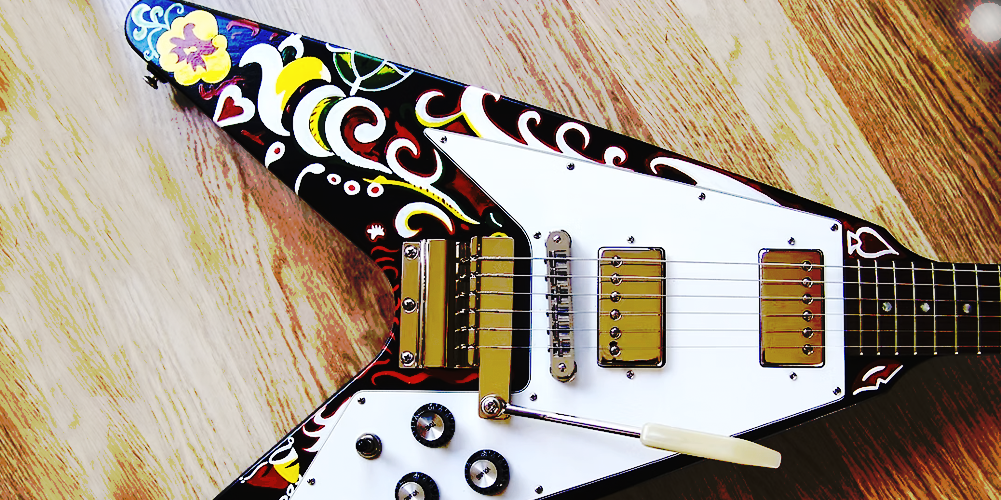When I poured over album sleeves, I always craved photos of the guitarists to see what equipment they were using. It often defined the band. For example Thin Lizzy were defined by those twin Les Paul’s. Deep Purple by Blackmore’s Stratocaster.
It was fascinating, especially when you considered how crucial to the music was the guitar. When I was young I didn’t really appreciate that what I liked about, say, Rory Gallagher, was the way the guitar sounded as much as how he played it. It was the same with Johnny Winter. That cutting trebly tone was so distinctive and of course integral to it was the Gibson Firebird.
I could never see Jimmy Page with any other guitar than the Les Paul, so when I saw pictures of him with the dragon telecaster with the Yardbirds, it just looked wrong.
Players became synonymous with certain guitars. When you see a twin-neck Gibson, only Page comes to mind, though plenty of others played one. Hendrix is forever a Strat man, but he played a Flying V too but we don’t think of him with it. Michael Schenker on the other hand is nothing but a Flying V.
The iconography of the guitar could be said to be a visual synonym for rock n roll and when you see the instrument that such great music was created on, in some way you have made an emotional investment in it. That’s why, when they are sold, they attract such high prices. There is a desire to be close to the instrument and amplification that made the music that helped define your life.
I was watching Rick Beato talking to Christopher Cross. He was fascinating. When young he teched for Page at a gig in Texas, loved his Hi-tech amp which only Townshend and Page had, gave him 700 dollars and had one built especially for him. And did you know Cross is the only person to deputise for Ritchie Blackmore in Deep Purple, at their first American show in Texas, when Ritchie reacted badly to a flu jab and Eric Johnson’s first recorded music is on his first album. Amazing, right? More amazing still, he had got rid of all the tech in subsequent years.
I heard someone talking about how Gibson SGs went out of tune all the time in the early 70s. Yet I never thought about such things, that it might have been part of the craft just to keep them in tune. Even now, though I don’t really understand guitar tech talk, I love hearing about it. It seems like a secret artform and it remains fascinating.
Sidebar
The Guitar - A visual synonym for rock n roll...



